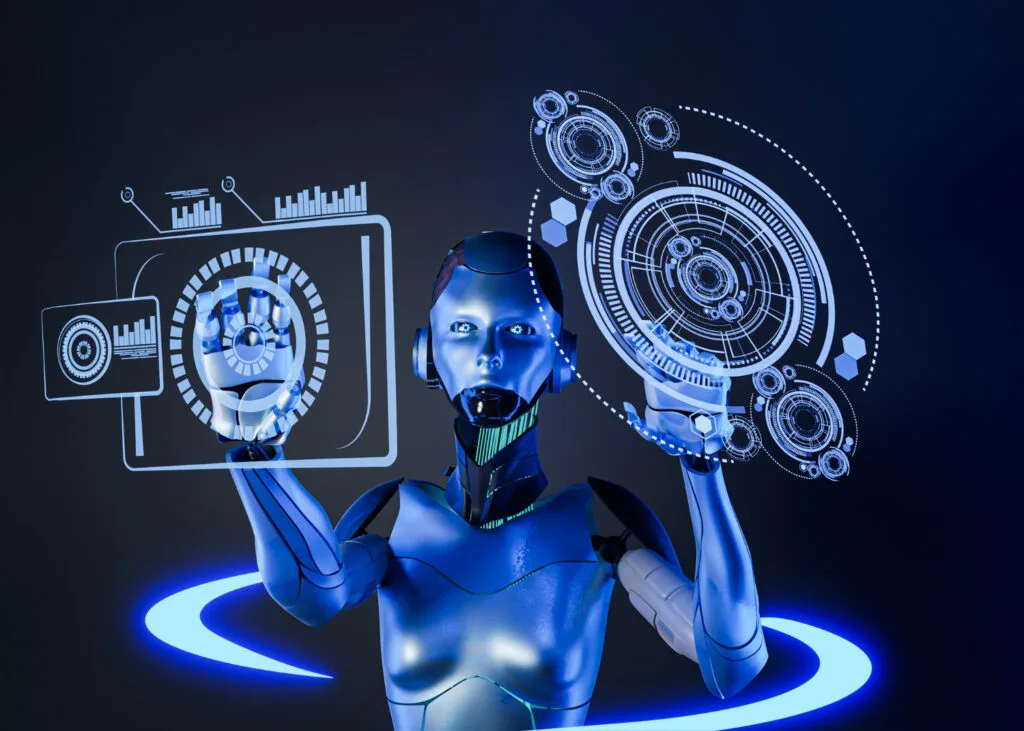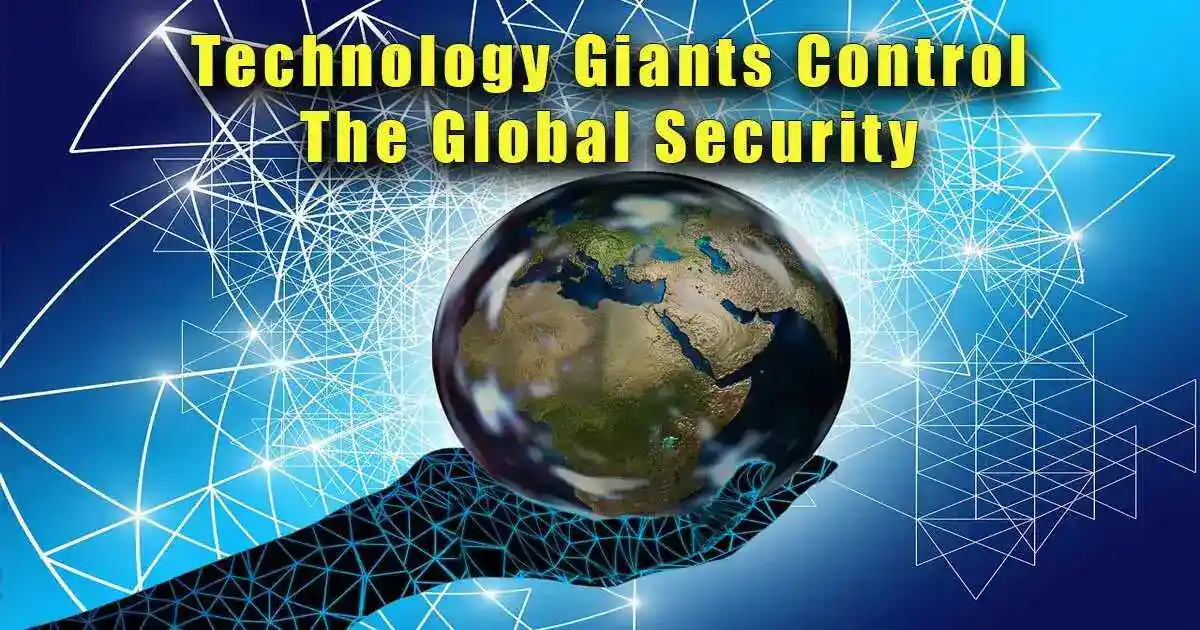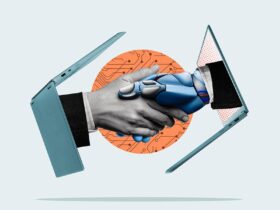Technology giants play a pivotal role in controlling global security dynamics. Their influence extends across data management, surveillance, and cybersecurity.
Technology giants like Google, Apple, Facebook, and Amazon wield enormous and far-reaching power in today’s digital world. These corporations manage vast amounts of data, contributing significantly to national and international security frameworks. Their capabilities in monitoring, data analysis, and encryption make them central players in efforts to safeguard digital domains.
As gatekeepers of information and technology giants, these technology giants shape security policies and practices around the world. This influence raises important questions about privacy, power, and the role of corporate entities in global security affairs. Their position at the forefront of technological innovation also places them in a unique spot to address evolving security challenges.
Table of Contents
The Rise Of Tech Titans
As the digital age accelerates, a handful of companies have emerged as the new overlords of the tech landscape. These tech titans wield unprecedented influence over the global security apparatus. Their rise marks a turning point in how power is distributed across the world’s technological domains.
Market Domination Of Global Technology Giants
Technology giants command vast market share in their respective domains. Companies like Google, Amazon, and Facebook are not just household names; they’re integral to the internet’s infrastructure.
- Google: Dominates search engine use
- Amazon: Leads in e-commerce and cloud services
- Facebook: Owns the largest social network
These companies shape user experiences, influencing what people see, buy, and believe. Their products and services reach billions, making them gatekeepers of digital content.
| Company | Market Share |
| ~92% in search engines | |
| Amazon | ~47% in US e-commerce |
| 2.8 billion active users |
Acquisition Of Power
These technology giants have grown not only organically but also through strategic acquisitions. They buy potential rivals, securing their positions at the top.
- Google acquired Android, bolstering mobile dominance
- Facebook bought Instagram, expanding its social reach
- Amazon purchased Whole Foods, entering brick-and-mortar retail
Each acquisition serves a dual purpose: it eliminates competition and diversifies the company’s capabilities. This trend shows no sign of slowing down, with technology giants continuously scouting for the next big buy.
Power consolidation is clear as these companies extend their influence across industries and platforms. From personal data to global communication networks, technology giants have an unparalleled grip on the digital era’s security landscape.

Influence On Global Security
Influence on Global Security is a critical topic today. Technology giants hold vast power over our digital world. They shape how we communicate, access information, and protect our data. But what happens when this power impacts global security? Let’s dive into the concerns and realities of this influence.
Data Sovereignty Concerns
Data sovereignty is about who owns and controls digital information. Countries want to protect their data. They fear tech giants might misuse it. These companies have servers across the world. This makes it hard for nations to keep their data within borders. Let’s look at the issues:
- Server Locations: Companies store data globally. This can bypass local laws.
- User Privacy: People worry about who can see their information.
- Government Access: Sometimes, companies must share data with authorities.
Manipulation Of Information
Information shapes opinions and decisions. With technology giants controlling platforms, they can sway public thought. They decide what news and content we see. This is a big deal for security. Let’s explore the ways this happens:
| Method | Impact |
| Algorithm Changes | They alter what users see online. |
| Content Promotion | Certain topics get more visibility. |
| Censorship | Some voices and ideas get silenced. |
The balance of power and responsibility is tricky. We trust tech giants to secure our data. We also expect them to be fair in managing information. The impact on global security is clear. We need transparency and accountability to keep this power in check.
Cybersecurity Implications
The digital realm is now a battleground for security, with technology giants holding the reins. These entities not only develop the tools we use daily but also shape the cybersecurity landscape. They hold massive power in defending against cyber threats, raising questions about the balance of control and the integrity of global security systems.
Vulnerabilities And Exploits
Technology giants encounter countless threats. Malicious actors constantly seek out weaknesses in their systems. With vast networks to defend, these companies face a relentless stream of vulnerabilities and exploits. Each security gap poses a risk not just to them but to users worldwide.
- Zero-day exploits
- Phishing attacks
- Ransomware
Regular updates and patches are crucial. They protect against these threats. Quick response times can make all the difference.
Monopolizing Defense Strategies
Big tech companies often lead in creating defense strategies. This can be both a blessing and a challenge. They have the resources to innovate, which benefits users. But this can also lead to a lack of diversity in defense approaches.
Centralized security systems can become single points of failure. This puts everyone at risk. Diverse security solutions can provide a stronger, more resilient defense against cyber threats.
| Pros | Cons |
| Advanced security tools | Potential for abuse of power |
| Global threat intelligence | Risk of single point of failure |
It is vital for other players to contribute to cybersecurity. This ensures a balanced and robust global security posture.
Privacy At Stake
Privacy at Stake is a pressing concern in today’s digital landscape. As technology giants expand their reach, personal data often falls into a vast pool of resources, ripe for exploitation. This section delves into the intricate ways these behemoths handle our information and the implications for individual privacy.
User Data Exploitation
Our online footprints are valuable. Tech companies collect data whenever we click, like, or share. This data shapes user profiles, targets ads, and even predicts behavior. Let’s break down this complex process:
- Tracking cookies are small files that save our browsing habits.
- Data Aggregation: Companies combine our information into extensive databases.
- Profile Building: Our online activities create digital personas.
These actions raise alarms. Why? Personal details are at risk. Companies might share them without consent. Users often remain unaware of such exchanges.
Surveillance Capitalism
Surveillance Capitalism is a new term. It describes a business model where human experiences turn into data for profit. Here’s how it works:
| Activity | Data Collected | Use |
| Online Shopping | Purchase History | Ad Targeting |
| Social Media Use | Interests and Likes | Behavior Prediction |
| Smart Devices | Usage Patterns | Product Development |
This system is widespread. It affects nearly all online interactions. Users become products, and their rights get sidelined. Awareness and regulations are crucial steps towards reclaiming privacy.
Economic Impact
The economic impact of technology giants spans across various sectors, influencing market dynamics and economic structures globally.
Inequality And Market Disruption
Technology giants often lead to significant market shifts. These shifts can create economic imbalances.
- Rising wealth gaps as tech leaders gain more, leaving others behind.
- Job displacement in traditional sectors, with tech roles growing.
This disruption often results in a dual economy, where tech-savvy companies and individuals prosper significantly more than those in traditional roles.
Dependency And Fragility
Global reliance on a few tech companies has increased economic dependency. This concentration raises concerns about fragility in economic systems.
- Single points of failure can emerge, where issues in one company affect many.
- Quick shifts in technology giants can make old systems obsolete, forcing costly updates.
This dependency on technology giants can lead to rapid, often disruptive changes in the economy, requiring businesses and individuals to adapt swiftly to maintain stability.
Social And Political Influence
The influence of technology giants on society and politics is vast. These companies shape how we see the world and interact with each other.
Shaping Public Opinion
Technology giants control the information we see every day. They use algorithms to decide what news we read and which opinions we hear. This power allows them to influence public opinion on a large scale.
- Algorithms highlight trending topics, pushing certain views forward.
- Social media platforms can suppress or promote specific news.
- Bold statements and headlines grab more attention.
Elections And Democracy
Tech giants have a significant role in elections. They can influence voting behavior by controlling what information voters see. This raises questions about the fairness of elections.
| Effect | Description |
| Information Flow | Control over what news reaches the public. |
| Opinion Shaping | Influence on public opinion through targeted content. |
| Voter Manipulation | Potential to sway elections by highlighting specific topics. |
These actions can shift the outcomes of democratic processes. It is essential for the public to be aware of these influences. Awareness helps in making informed decisions during elections.
Regulatory Responses
Big tech firms hold vast influence over global security. Their reach prompts governments to act. Nations worldwide are crafting rules to curb their power. This section explores how laws and regulations shape the tech landscape.
Antitrust Movements
Antitrust laws aim to ensure fair competition. These laws stop tech giants from dominating markets unfairly. Many countries are reviewing and updating these laws to keep pace with the digital era.
- US: New bills propose stronger oversight of tech mergers.
- EU: The Digital Markets Act (DMA) targets tech monopolies.
- China: Fines for anti-competitive behavior have increased.
Global Data Protection Laws
Personal data is a hot commodity. Protecting it is crucial. New laws focus on user privacy and data handling.
| Region | Law | Key Feature |
| EU | GDPR | User consent for data processing |
| US | CCPA | Consumer rights to access and delete data |
| Brazil | LGPDP | Data protection similar to GDPR |
These laws affect how tech companies operate globally. They must adapt to comply with different regional requirements.

Future Prospects
The landscape of global security is ever-changing. Tech giants shape this realm significantly. The future holds promise for shifts in power and innovation. Let’s explore what lies ahead.
Decentralization Efforts
Decentralization is key to reducing single points of failure. It enhances privacy and security for users worldwide. Blockchain technology giants drive these efforts. Many companies are exploring decentralized networks. These networks spread control across multiple nodes. This shift challenges traditional security models.
- Peer-to-peer networks gain traction.
- Blockchain applications in security protocols increase.
- Users gain more control over their personal data.
Innovative Security Approaches
Tech giants invest in cutting-edge security. They aim to protect data and infrastructure. Artificial intelligence plays a big role. Machine learning algorithms detect and prevent threats faster. Quantum computing promises to revolutionize encryption.
| Technology | Impact on Security |
| AI & Machine Learning | Real-time threat detection |
| Quantum Computing | Unbreakable encryption potential |
| Biometrics | Enhanced identity verification |
Biometric systems add another security layer. Fingerprints and facial recognition are common. These systems are hard to deceive. They ensure that only authorized users gain access.
Frequently Asked Questions
How does technology impact global security?
Technology giants enhance global security through advanced surveillance, cyberdefense systems, and international communication. It also poses threats like cyber warfare and privacy breaches, requiring balanced management for safety.
What Is Global Security, and Why Is It Important?
Global security refers to measures taken to protect states and citizens from threats like terrorism, cyber attacks, and warfare. Its importance lies in maintaining international peace, stability, and the safety of individuals worldwide.
What Is the Threat of Technology?
The threat of technology includes job displacement, privacy breaches, and increased screen time impacting health. It can also lead to social isolation and cyber security risks.
What Is Technical Security in Cyber Security?
Technical security in cybersecurity involves implementing hardware and software mechanisms to protect systems from threats. This includes firewalls, encryption, and access controls.
How Do Tech Giants Affect Global Security?
Tech giants influence global security by owning extensive user data, developing advanced technology, and collaborating with governments on security issues.
What power do tech companies hold?
Tech companies wield significant power through data control, market influence, and technological innovation shaping societal norms and privacy standards.
Are tech giants too influential in security?
Some argue that tech giants’ influence on security is excessive, potentially leading to monopolistic practices and privacy concerns.
How do companies manage cybersecurity threats?
Companies mitigate cybersecurity threats with robust protocols, employee training, advanced encryption, and regular system updates to safeguard data.
Can technology control global security risks?
Technology giants can help control global security risks by enabling better threat detection, response automation, and fostering international cybersecurity collaborations.
What Role Do Tech Giants Play in Privacy?
Tech giants play a critical role in privacy by setting data collection and usage policies that impact user trust and regulatory compliance.
Conclusion
As we navigate the digital age, the influence of tech behemoths on global security is undeniable. Their reach extends far beyond their own platforms, shaping security practices worldwide. It’s vital for users and policymakers alike to stay informed and proactive in this dynamic landscape.
Together, we can ensure that our collective security doesn’t rest solely in the hands of a few powerful entities.










Leave a Reply